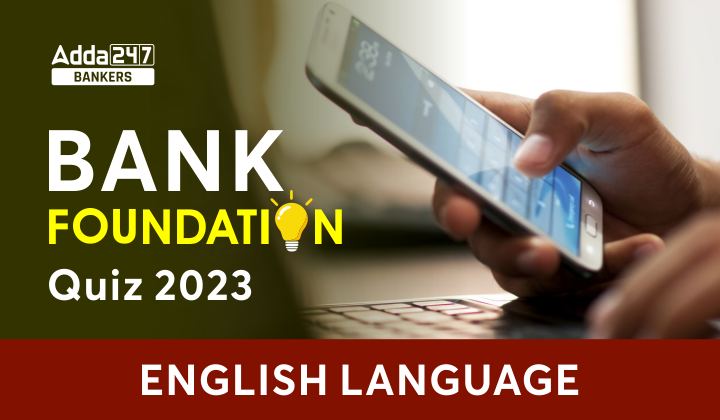Directions (1-10): Read the following passage carefully and answer the questions given below it. Certain words are given in bold to help you locate them while answering some of the questions.
There are many things that make us what we are – how we live, the languages we speak, what we eat, wear, the games we play and the things we celebrate. All of these are influenced both by the geography and history of the place where we live. You will get an idea of how diverse India is if you look even briefly at the following statement:
There are eight major religions in the world. Every single one of them is practised in India. We have more than 1600 languages that are people’s mother tongues, and there are more than a hundred dance forms.
Yet this diversity is not always celebrated. This is because we feel safe and secure with people who look, talk, dress and think like us. Sometimes when we meet people who are very different from us we may find them strange and unfamiliar. At times we may not understand or know the reasons why they are different from us. People also form certain attitudes and opinions about others who are not like them.
When our opinions about certain people are always negative, then these become prejudices that we carry about them. Prejudice means to judge other people negatively or see them as inferior. When we think that only one particular way is the best and right way to do things we often end up not respecting others, who may prefer to do things differently. For example, if we think English is the best language and other languages are not important, we are judging these other languages negatively. As a result, we might not respect people who speak languages other than English. We can be prejudiced about many things: people’s religious beliefs, the colour of their skin, the region they come from, the accent they speak in, the clothes they wear etc. Often, our prejudices about others are so strong that we don’t want to form friendships with them. At times, we may even act in ways that hurt them.
Q1. What influences those aspects which make us what we are? Choose the correct option based on the information given in the passage.
(a) The languages we speak
(b) Geography and history of the place where we live.
(c) What we eat
(d) Both (a) and (c)
(e) None of the above
Q2. Which of the followings are true in the context of the passage?
(I) India has more than 16000 languages that are people’s mother tongues.
(II) Every single of the eight major religions in the world is practiced in India.
(III) There are more than a hundred dance forms practiced in India.
(a) Only (I)
(b) Both (I) and (III)
(c) Both (II) and (III)
(d) Both (I) and (II)
(e) All of (I), (II) and (III)
Q3. Why diversity is not always celebrated?
(a) People feel safe and secure with those who look, talk, dress and think like us.
(b) People sometimes find those who are very different from us as strange and unfamiliar.
(c) People do not believe in secularism.
(d) Options (a) and (b)
(e) None of the above
Q4. Which of the followings might happen when a person named ‘Akriti’ meets Akash who is very different from her? Answer the question based on the information given in the passage without assuming anything else.
(I) Akriti may find Akash strange and unfamiliar.
(II) Akriti may form certain attitudes and opinions about Akash.
(III) Akriti will definitely dislike Akash.
(a) Only (III)
(b) Both (II) and (I)
(c) Both (II) and (III)
(d) Both (I) and (III)
(e) All of (I), (II) and (III)
Q5. Which of the options correctly mention the condition for an opinion about certain people to be a prejudice?
(a) The opinions about certain people are neutral always.
(b) The opinions about certain people are positive always.
(c) The opinions about certain people are negative always.
(d) Options (a) or (c)
(e) None of the above
Q6. Which of the following statement is a correct example of prejudice?
(a) Father of Suresh thinks that only graduates from IIT colleges are successful while the graduates from other colleges are not.
(b) Mother of Akansha thinks that her daughter would be happy only if she would marry someone who belongs to a certain caste and religion.
(c) Sameek thinks that only those females who are housewives deserve respect but those women who are working have degraded the values.
(d) Options (a) and (b)
(e) Options (a), (b) and (c)
Q7. Among the options, choose the option which has a meaning which is SIMILAR to the given word.
Diversity
(a) Sameness
(b) Variety
(c) Attribute
(d) Secularism
(e) Strength
Q8. Among the options, choose the option which has a meaning which is SIMILAR to the given word.
Inferior
(a) Underling
(b) Anger
(c) Confidence
(d) Superior
(e) Trust
Q9. In the following questions, choose the option among the given options which has a meaning OPPOSITE to the meaning of the given word.
Strange
(a) High
(b) Low
(c) Fast
(d) Slow
(e) Common
Q10. In the following questions, choose the option among the given options which has a meaning OPPOSITE to the meaning of the given word.
Strong
(a) slow
(b) uncommon
(c) innocent
(d) calm
(e) bad
Solutions
S1. Ans. (b)
Sol. The answer to the question can be derived from the first paragraph ‘There are many things that make us what we are—how we live, the languages we speak, what we eat, wear, the games we play and the things we celebrate. All of these are influenced both by the geography and history of the place where we live’. From the sentences, we can understand that the aspects which makes us what we are ‘how we live, the languages we speak, what we eat, wear, the games we play and the things we celebrate’ but these aspects are influenced by the geography and history of the place where we live.
Hence, the option (b) is the correct answer.
S2. Ans. (c)
Sol. The answer to the question can be derived from the second paragraph.
The paragraph mentions that there are more than 1600 languages that are people’s mother tongues, NOT 16000 languages. So, the statement (I) is incorrect.
The statement (II) is correct which can be inferred from the first two sentences of the second paragraph.
The statement (III) is also correct as is evident from the last phrase of the last sentence of the second paragraph.
So, the statements (II) and (III) are correct while the statement (I) is incorrect.
Hence, the option (c) is the correct answer.
S3. Ans. (d)
Sol. The answer to the question can be derived from the third paragraph. Kindly read the first three sentences of the third paragraph- ‘Yet this diversity is not always celebrated. This is because we feel safe and secure with people who look, talk, dress and think like us. Sometimes when we meet people who are very different from us we may find them strange and unfamiliar’.
From above, we can derive the options (a) and (b) as correct reasons for the situation asked in the question.
Hence, the option (d) is the correct answer.
S4. Ans. (b)
Sol. The answer to the question can be derived from the third paragraph which talks about how people would behave when they meet someone who isn’t like them. The information presented in the paragraph doesn’t suggests if Akriti would definitely dislike Akash but surely, she may find Akash strange and unfamiliar, and may form certain attitudes and opinions about Akash.
So, both the statements (I) and (II) are correct and hence, the option (b) is the correct answer.
S5. Ans. (c)
Sol. The answer to the question can be derived from the first two sentences of the last paragraph ‘when our opinions about certain people are always negative, then these become prejudices that we carry about them. Prejudice means to judge other people negatively or see them as inferior’. From these sentences, we can infer that for an opinion about certain people to become a prejudice that is carried about them, the opinion must always be negative.
Hence, the option (c) is the correct answer.
S6. Ans. (e)
Sol. The answer to the question can be derived with the help of the first two sentences of the last paragraph- Prejudice means to judge other people negatively or see them as inferior.
In the option (a), Father of Suresh judges graduates from other colleges inferior.
In the option (b), Mother of Aakansha have positive opinions only those bride-grooms who belong to a certain caste and religion.
In the option (c), Sameek views working women as inferior in character.
All the options (a), (b) and (c) display examples of ‘prejudice’ correctly.
Hence, the option (e) is the correct answer.
S7. Ans. (b)
Sol. Diversity [noun] means ‘a range of different things’;
Sameness [noun] means ‘uniformity or monotony; lack of variety’;
Variety [noun] means ‘the quality or state of being different or diverse; the absence of uniformity or monotony’;
Attribute [noun] means ‘a quality or feature regarded as a characteristic or inherent part of someone or something’;
Secularism [noun] means ‘the principle of separation of the state from religious institutions’;
Strength [noun] means ‘the quality or state of being physically strong’;
From above, it could be understood that the word ‘variety’ has a meaning which is closer to the meaning of ‘diversity’. Hence, the option (b) is the correct answer.
S8. Ans. (a)
Sol. Inferior [noun] means ‘lower in rank, status, or quality’;
Underling [noun] means ‘a person lower in status or rank’;
Anger [noun] means ‘a strong feeling of annoyance, displeasure, or hostility’;
Confidence [noun] means ‘the feeling or belief that one can have faith in or rely on someone or something’;
Superior [noun] means ‘a person superior to another in rank or status, especially a colleague in a higher position’;
Trust [noun] means ‘firm belief in the reliability, truth, or ability of someone or something’;
From the above-mentioned meaning, it could be understood that the word ‘secondary’ has a meaning CLOSER or SIMILAR to the meaning of the word ‘inferior’.
Hence, the option (a) is the correct answer.
S9. Ans. (e)
Sol. Strange [adjective] means ‘unusual or surprising; difficult to understand or explain’;
High [adjective] means ‘of great vertical extent’;
Low [adjective] means ‘of less than average height from top to bottom or to the top from the ground’;
Fast [adjective] means ‘moving or capable of moving at high speed’;
Slow [adjective] means ‘moving or operating, or designed to do so, only at a low speed; not quick or fast’;
Common [adjective] means ‘occurring, found, or done often; prevalent’;
From above, we can understand that the word ‘common’ has a meaning which is OPPOSITE to the meaning of the word ‘strange’.
Hence, the option (e) is the correct answer.
S10. Ans. (d)
Sol. Strong [adjective] means ‘powerfully affecting the mind, senses or emotions’;
Slow [adjective] means ‘taking a long time to perform a specified action’;
Uncommon [adjective] means ‘out of the ordinary; unusual’;
Innocent [adjective] means ‘not guilty of a crime or offence’;
Calm [adjective] means ‘not showing or feeling nervousness, anger, or other strong emotions’;
Bad [adjective] means ‘of poor quality or a low standard’;
From above, it can be understood that the meaning of the word ‘calm’ has a meaning which is opposite to the meaning of the word ‘strong’.
Hence, the option (d) is the correct answer.





 English Language Quiz For Bank Foundatio...
English Language Quiz For Bank Foundatio...
 English Language Quiz For Bank Mains Exa...
English Language Quiz For Bank Mains Exa...







